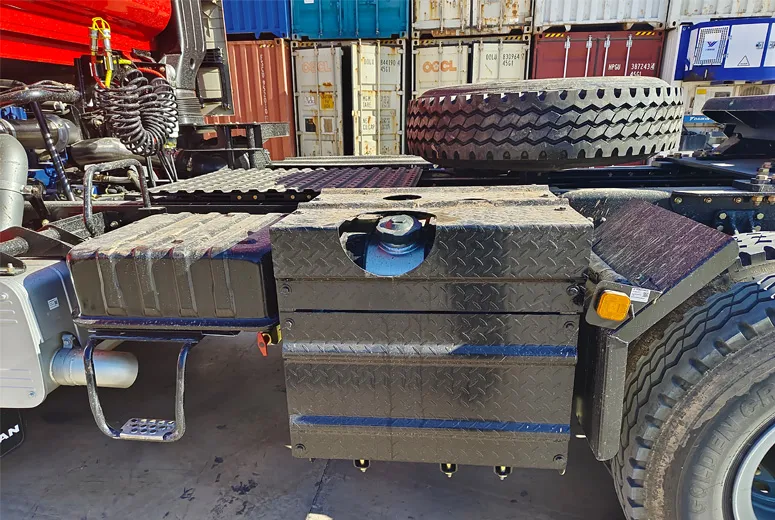electric heavy-duty truck
The Rise of Electric Heavy-Duty Trucks A Sustainable Future for Freight Transportation
In recent years, the transportation industry has faced growing pressure to address the environmental impact of fossil fuel consumption. Heavy-duty trucks, which are responsible for a significant portion of greenhouse gas emissions, are now at the forefront of an electrification revolution. Electric heavy-duty trucks (EHDs) are emerging as a viable alternative to conventional diesel-powered vehicles, offering a cleaner, quieter, and more efficient means of transporting goods over long distances.
The heavy-duty trucking sector is a vital component of the global economy, estimated to haul over 70% of all freight in the United States alone. However, traditional diesel trucks are notorious for their emissions, contributing to air pollution and climate change. According to the Environmental Protection Agency (EPA), medium- and heavy-duty vehicles account for nearly 25% of greenhouse gas emissions from the transportation sector. This alarming statistic has prompted stakeholders, including governments, automotive manufacturers, and logistics companies, to explore sustainable alternatives.
Electric heavy-duty trucks are designed to reduce or eliminate these harmful emissions. Powered by large battery systems, these vehicles produce zero tailpipe emissions, making them significantly cleaner than their diesel counterparts. Moreover, advancements in battery technology have allowed manufacturers to increase the energy density and efficiency of electric vehicle (EV) batteries, enabling electric trucks to carry heavier loads over longer distances. Several leading companies, such as Tesla, Volvo, and Nikola, are currently developing and producing electric heavy-duty trucks that cater to a variety of logistics needs.
One of the most notable advantages of electric heavy-duty trucks is their lower operational costs. While the initial purchase price of an electric truck may be higher than that of a diesel truck, the total cost of ownership can be considerably lower. Electric trucks typically have fewer moving parts, leading to reduced maintenance expenses. Additionally, electricity is often cheaper than diesel fuel, and with the rise of renewable energy sources, the long-term cost of electric fuel is expected to decline further. Fleet operators can save significant amounts on fuel and maintenance, facilitating a quicker return on investment.
electric heavy-duty truck

Another crucial benefit of transitioning to electric heavy-duty trucks is the reduction of noise pollution
. Diesel trucks are loud and disruptive, especially in urban environments where noise levels are already a concern. Electric trucks operate much more quietly, minimizing disturbances for nearby residents and promoting a healthier work environment for drivers and logistics personnel. The adoption of electric vehicles can enhance the quality of life in cities, making them more appealing places to live and work.Despite these advantages, several challenges remain in the widespread adoption of electric heavy-duty trucks. One of the significant hurdles is the need for a robust charging infrastructure. Unlike passenger EVs, which can be charged at home or at various public charging stations, heavy-duty trucks require specialized high-capacity charging solutions. Stakeholders are working diligently to develop a network of fast-charging stations designed for heavy-duty vehicles, ensuring that fleets can recharge their trucks quickly and efficiently during breaks or overnight.
Another concern is the range of electric heavy-duty trucks. While modern electric trucks are capable of traveling longer distances than previous models, many logistics operations rely on trucks to cover hundreds of miles in a single trip. Ongoing research and development aim to enhance battery technology further, allowing for greater ranges and faster charging times. Additionally, innovative solutions, such as battery swapping stations, are being explored to address range anxiety among operators.
Lastly, regulatory policies play a vital role in determining the pace of electrification within the trucking industry. Government incentives, such as tax credits and grants for purchasing electric heavy-duty trucks, along with stricter emissions regulations, can accelerate the transition to cleaner transportation solutions. Many jurisdictions are already implementing these policies to promote sustainability and combat climate change.
In conclusion, electric heavy-duty trucks represent a promising pathway toward a more sustainable and economically viable future for the freight transportation industry. By reducing emissions, lowering operational costs, and minimizing noise pollution, EHDs are poised to transform the logistics landscape. While challenges remain, collaboration between manufacturers, policymakers, and the logistics sector will be critical in overcoming these obstacles and ushering in a new era of electrified transportation. As technology advances and infrastructure develops, the vision of a cleaner, greener transportation network will become a reality, benefiting both the industry and the planet.
-
SINOTRUK HOWO 84 Electric Dump Truck for Eco-Friendly Heavy HaulingNewsJul.26,2025
-
The Fast 16-Gear Manual Transmission Assembly for Heavy TrucksNewsJul.25,2025
-
Mercedes Benz Actros 1848 42 Tractor Truck for Sale - Reliable PerformanceNewsJul.24,2025
-
High-Quality Water Pump Assembly for Sinotruk Trucks – Durable & ReliableNewsJul.23,2025
-
Premium Truck Engine Antifreeze Coolant Fluid for Heavy Duty VehiclesNewsJul.22,2025
-
FOTON View G7 Mini Bus: Affordable & Spacious TransportNewsJul.22,2025
Popular products

























